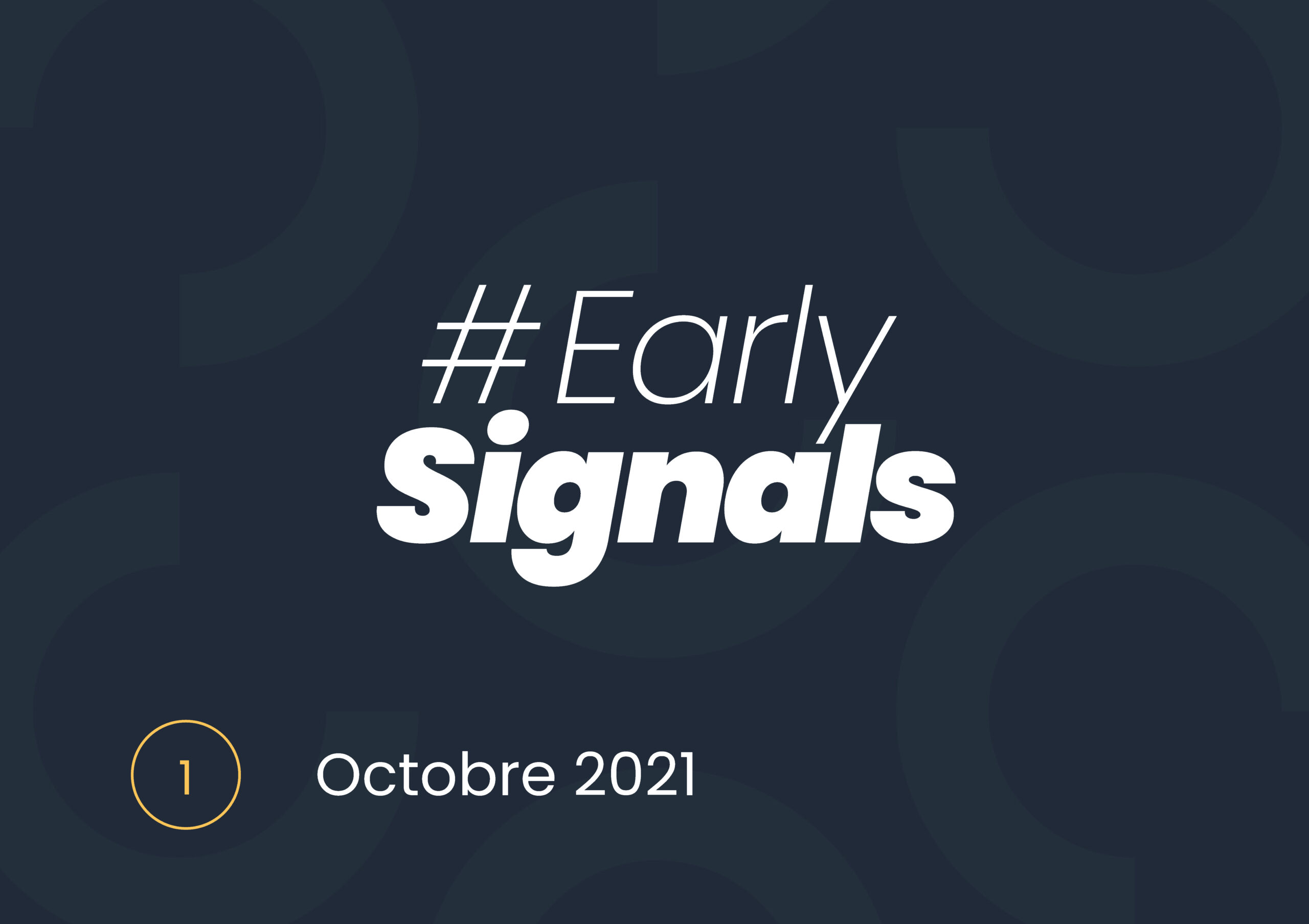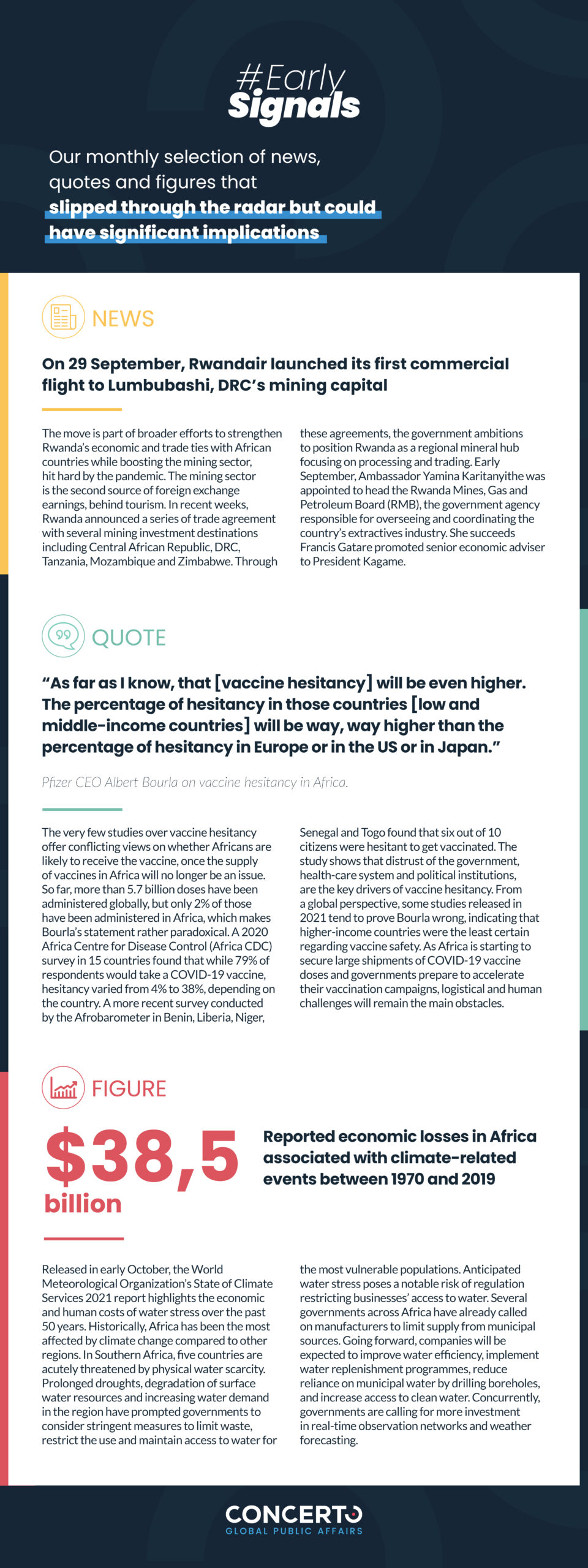Back
Our monthly selection of news, quotes and figures that slipped through the radar but could have significant implications
15 October 2021

Analysis
#EarlySignals
NEWS - On 29 September
Rwandair launched its first commercial flight to Lumbubashi, DRC’s mining capital
The move is part of broader efforts to strengthen Rwanda’s economic and trade ties with African countries while boosting the mining sector, hit hard by the pandemic. The mining sector is the second source of foreign exchange earnings, behind tourism. In recent weeks, Rwanda announced a series of trade agreements with several mining investment destinations including Central African Republic, DRC, Tanzania, Mozambique and Zimbabwe. Through these agreements, the government ambitions to position Rwanda as a regional mineral hub focusing on processing and trading. Early September, Ambassador Yamina Karitanyithe was appointed to head the Rwanda Mines, Gas and Petroleum Board (RMB), the government agency responsible for overseeing and coordinating the country’s extractive industry. She succeeds Francis Gatare promoted senior economic adviser to President Kagame. QUOTE« As far as I know, that [vaccine hesitancy] will be even higher. The percentage of hesitancy in those countries [low and middle-income countries] will be way, way higher than the percentage of hesitancy in Europe or in the US or in Japan. » Pfizer CEO Albert Bourla on vaccine hesitancy in Africa.The very few studies over vaccine hesitancy offer conflicting views on whether Africans are likely to receive the vaccine, once the supply of vaccines in Africa will no longer be an issue. So far, more than 5.7 billion doses have been administered globally, but only 2% of those have been administered in Africa, which makes Bourla’s statement rather paradoxical. A 2020 Africa Centre for Disease Control (Africa CDC) survey in 15 countries found that while 79% of respondents would take a COVID-19 vaccine, hesitancy varied from 4% to 38%, depending on the country. A more recent survey conducted by the Afrobarometer in Benin, Liberia, Niger, Senegal and Togo found that six out of 10 citizens were hesitant to get vaccinated. The study shows that distrust of the government, health-care system and political institutions, are the key drivers of vaccine hesitancy. From a global perspective, some studies released in 2021 tend to prove Bourla wrong, indicating that higher-income countries were the least certain regarding vaccine safety. As Africa is starting to secure large shipments of COVID-19 vaccine doses and governments prepare to accelerate their vaccination campaigns, logistical and human challenges will remain the main obstacles. FIGURE
USD 38.5 billion – Reported economic losses in Africa associated with climate-related events between 1970 and 2019.
Released in early October, the World Meteorological Organization's 2021 State of Climate Services report highlights the economic and human costs of water stress over the past 50 years. Historically, Africa has been the most affected by climate change compared to other regions. In Southern Africa, five countries are acutely threatened by physical water scarcity. Prolonged droughts, degradation of surface water resources and increasing water demand in the region have prompted governments to consider stringent measures to limit waste, restrict use and maintain access to water for the most vulnerable populations. Anticipated water stress poses a notable risk of regulation restricting businesses’ access to water. Several governments across Africa have already called on manufacturers to limit supply from municipal sources. Going forward, companies will be expected to improve water efficiency, implement water replenishment programmes, reduce reliance on municipal water by drilling boreholes, and increase access to clean water. Concurrently, governments are calling for more investment in real-time observation networks and weather forecasting.